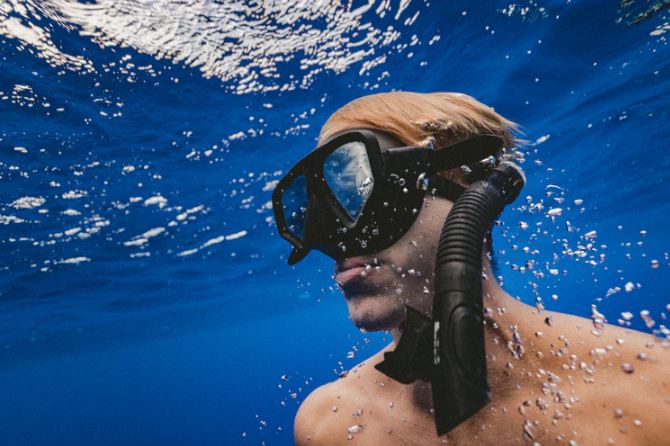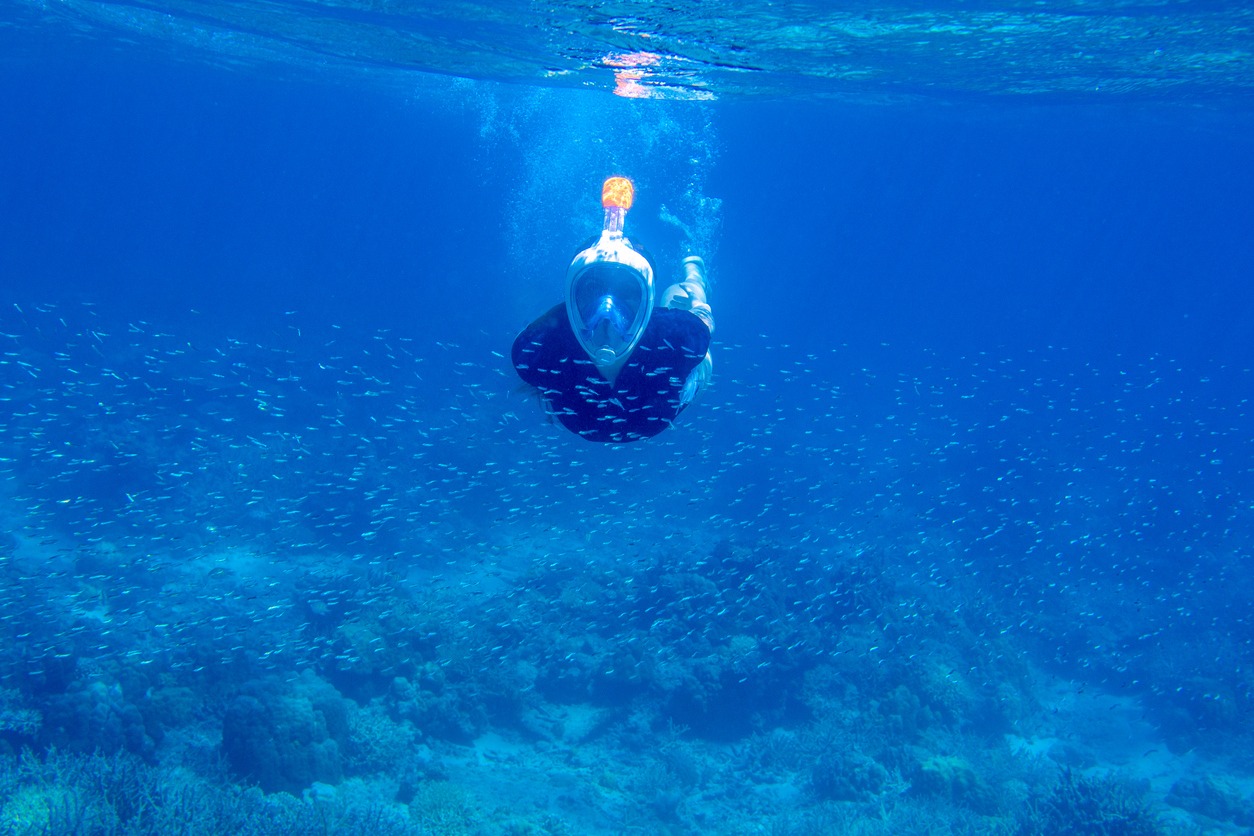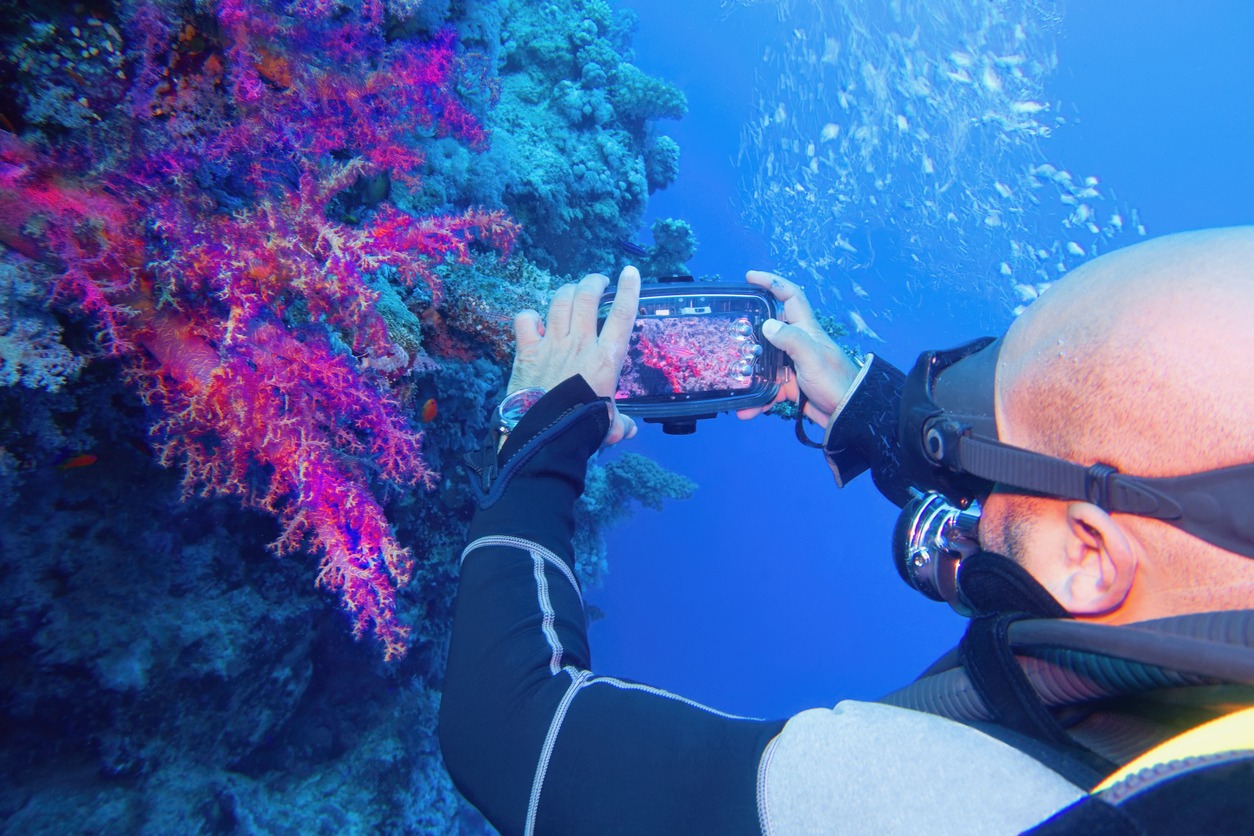Snorkeling Safety Tips: A Complete Guide to Safe and Fun Adventures
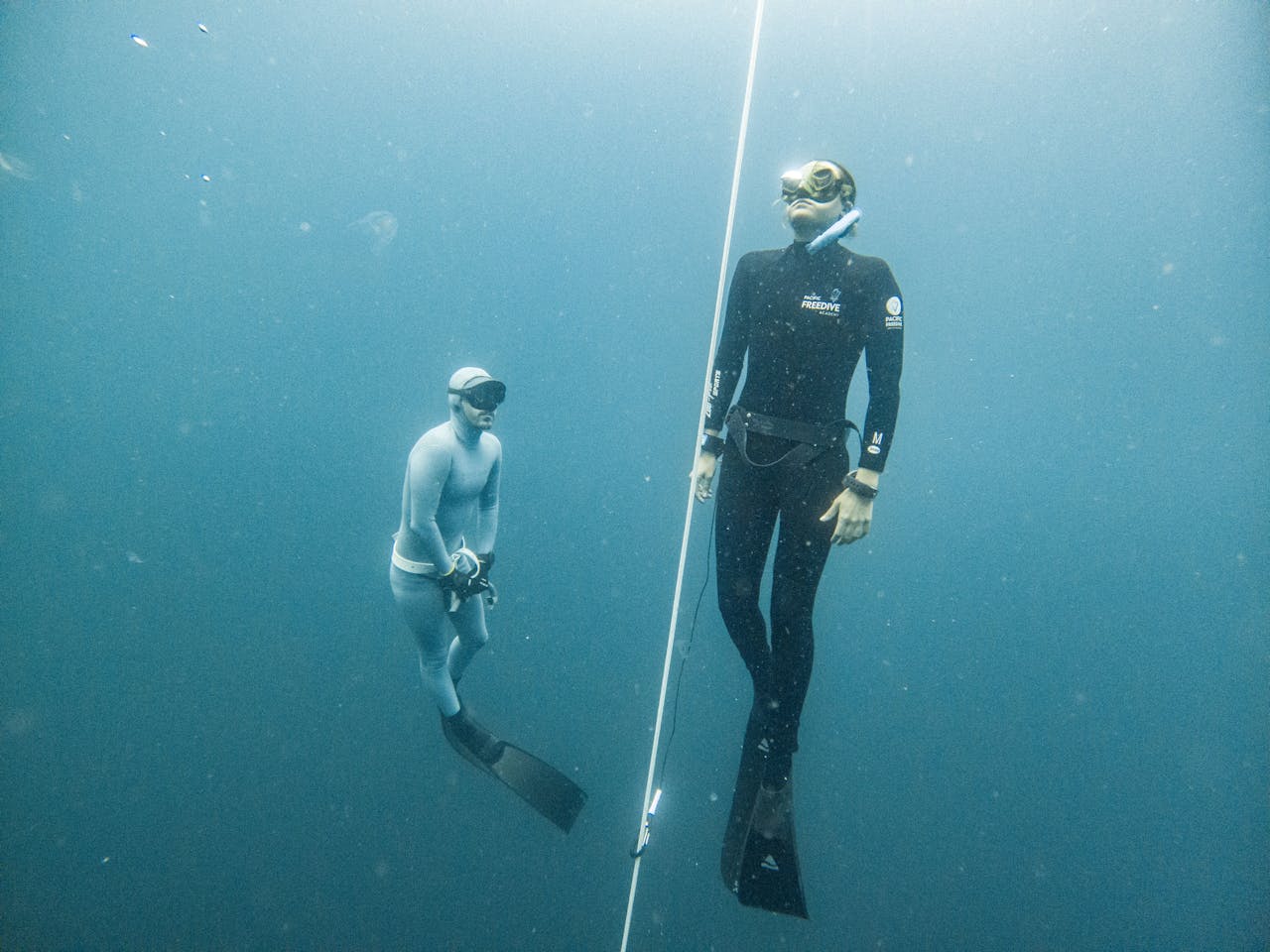
When snorkeling, always use the buddy system and stay within arm's reach of your companion. Assess environmental conditions before entering the water and avoid touching marine life. Equip yourself with a high-quality mask, comfortable fins, and a snorkel vest. Apply reef-safe sunscreen and stay hydrated. Maintain a safe distance from aquatic creatures and practice the "leave no trace" principle. Use clear communication signals with your buddy and notify them immediately of any concerns. Regularly inspect your gear and take breaks when needed. By following these essential tips, you'll be well-prepared for a safe and enjoyable underwater expedition. Plunge deeper to uncover more ways to enhance your snorkeling experience.
Buddy System for Snorkeling Safety
The buddy system is a snorkeling safety essential. When you snorkel with a partner, you're adding an extra layer of safety to your underwater venture. Always stay close to your companion, keeping them within arm's reach or sight at all times. This proximity allows you to quickly assist each other if needed.
Before entering the water, establish clear communication signals with your buddy. Consider commercial anti-fog products to confirm your mask or goggles stay fog-free, allowing you to keep a clear view of your surroundings. Notify your buddy immediately if you're experiencing any discomfort, equipment issues, or if you spot potential hazards. Remember, your buddy is there to help guarantee your safety, so don't hesitate to alert them to any concerns.
Regularly check on each other throughout your snorkeling session. Take turns watching the surface while your partner submerges, and agree on a maximum submersion time. If you lose sight of your buddy, surface immediately and regroup. The buddy system isn't just about safety; it's also about sharing the excitement of your underwater revelations. By following these snorkeling safety tips and embracing the buddy system, you'll enhance both your security and enjoyment during water activities.
Environmental Awareness While Snorkeling
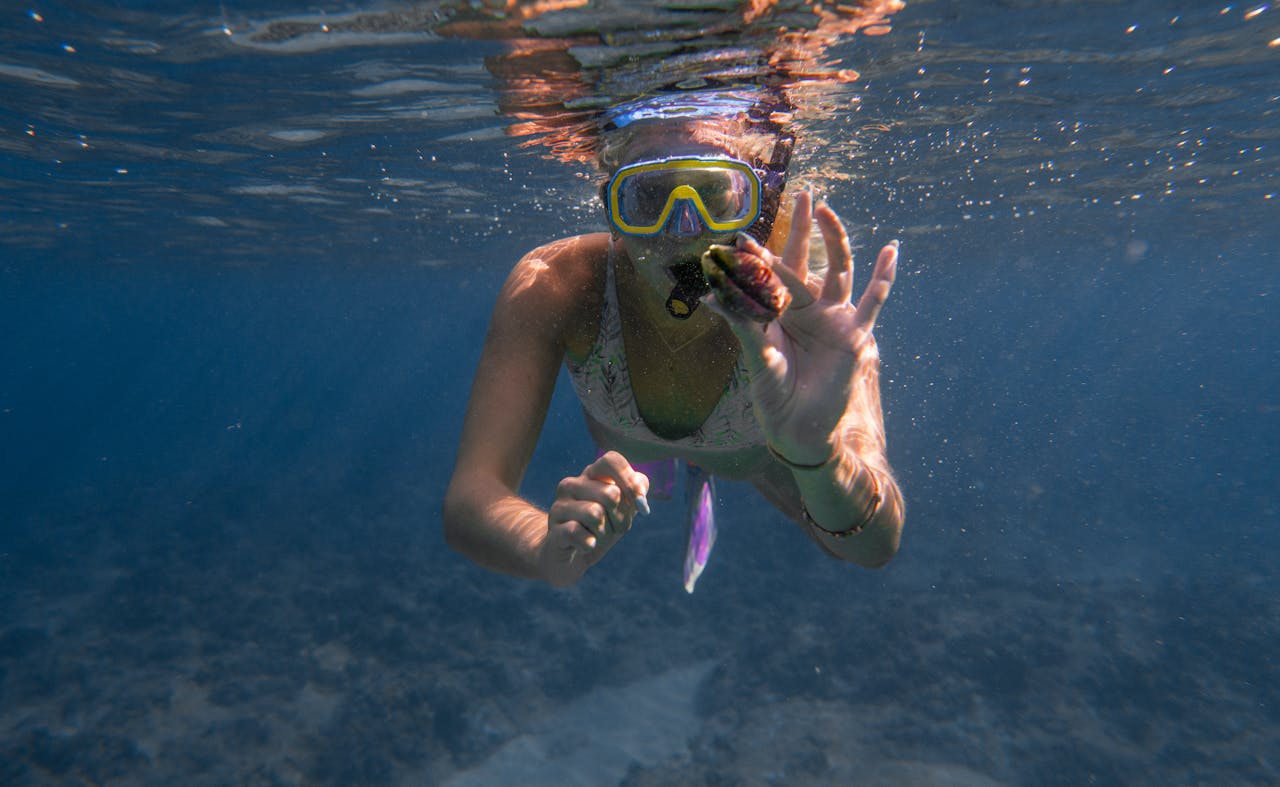
Before you plunge into the underwater world, it's imperative to assess the environmental conditions. Check weather conditions, wave conditions, currents, and wind conditions to guarantee safe snorkeling. Pay attention to any warning signs posted at the beach and avoid areas with strong currents or dangerous marine life.
As you explore, remember that you're a visitor in a delicate ecosystem. Environmental awareness is indispensable for preserving these underwater habitats. Avoid touching marine life or fragile coral reefs, as even the slightest contact can cause irreparable damage. These integral parts of the marine environment take years to grow and recover, so it's fundamental to admire them from a safe distance.
If you find yourself caught in a strong current, don't panic. Swim perpendicular to the current to safely escape its pull. This technique will help you conserve energy and reach calmer waters more efficiently.
Lastly, respect the marine environment by leaving it as you found it. Don't remove any organisms or disturb the natural balance. By practicing responsible snorkeling, you'll help protect these precious ecosystems for future generations to enjoy.
Essential Gear and Equipment
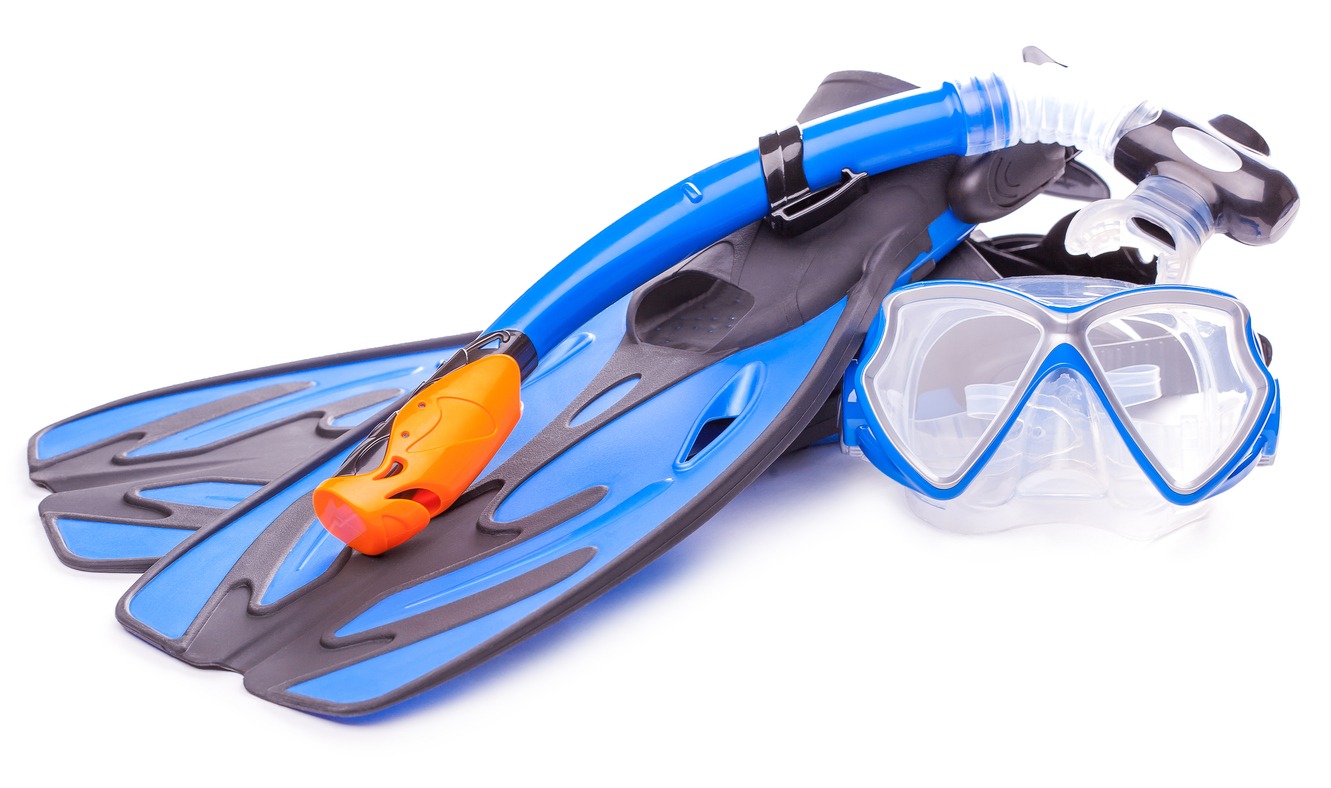
When preparing for your snorkeling outing, selecting the right gear is essential for safety and enjoyment. Start with a high-quality snorkel mask featuring tempered glass lenses and an effective anti-fog coating. Guarantee it fits properly with adjustable straps to prevent leaks and discomfort.
Choose fins that are comfortable and adjustable, providing efficient propulsion while minimizing foot fatigue. Don't forget a snorkel tube with a clear airway and splash guard to keep water out. For added safety, use a snorkel vest or approved flotation device to maintain proper buoyancy in the water.
Before each use, thoroughly inspect your equipment for signs of wear or damage. Check the mask's seal, fin straps, and snorkel tube for any cracks or tears. Confirm all buckles and clasps are functioning correctly.
Health Precautions for Snorkelers
Safeguarding your physical well-being, you'll need to take several health precautions before and during your snorkeling expedition. First, avoid alcohol consumption before and while snorkeling to maintain alertness and coordination. Stay hydrated by drinking plenty of water throughout your quest to prevent dehydration.
Protect your skin from harmful UV rays by applying reef-safe sunscreen generously. Consider wearing a rash guard for additional protection. Address any mask fogging issues promptly to maintain clear visibility and prevent eye strain or headaches.
Remaining informed about weather conditions is vital. Check the forecast before your trip and be prepared to adjust your plans if necessary. During your snorkeling session, take breaks as needed to avoid exhaustion. Recognize signs of fatigue and don't push yourself beyond your limits.
To prevent water-related illnesses, avoid swallowing seawater and rinse your mouth with fresh water after snorkeling. If you're prone to motion sickness, consider taking appropriate medication before your trip. By following these health precautions, you'll guarantee a safe and enjoyable snorkeling experience while minimizing potential risks to your well-being.
Responsible Marine Life Interaction
While safeguarding your health is paramount, protecting marine life is equally important. As you inspect the underwater world, make sure you're aware of your impact on the marine environment. Maintain a safe distance of 3-6 feet from aquatic creatures to avoid disturbing their natural behaviors. Refrain from touching, feeding, or chasing after fish, sea turtles, and other marine life, as this can cause stress and alter their ecosystem.
Be mindful of your movements in the water. Avoid standing or stepping on coral reefs, even in shallow conditions. These fragile ecosystems can be easily damaged by human contact. Instead, perfect your buoyancy control to maneuver safely around underwater structures. Before you enter the water, apply reef-safe, biodegradable sunscreen to minimize your impact on the marine environment. This small change can make a big difference in preserving the health of coral reefs and other aquatic habitats.
Lastly, always practice the "leave no trace" principle. Properly dispose of any trash and make certain you don't leave anything behind. By following these guidelines, you'll contribute to a safe and sustainable snorkeling experience for both you and the marine life you encounter.

